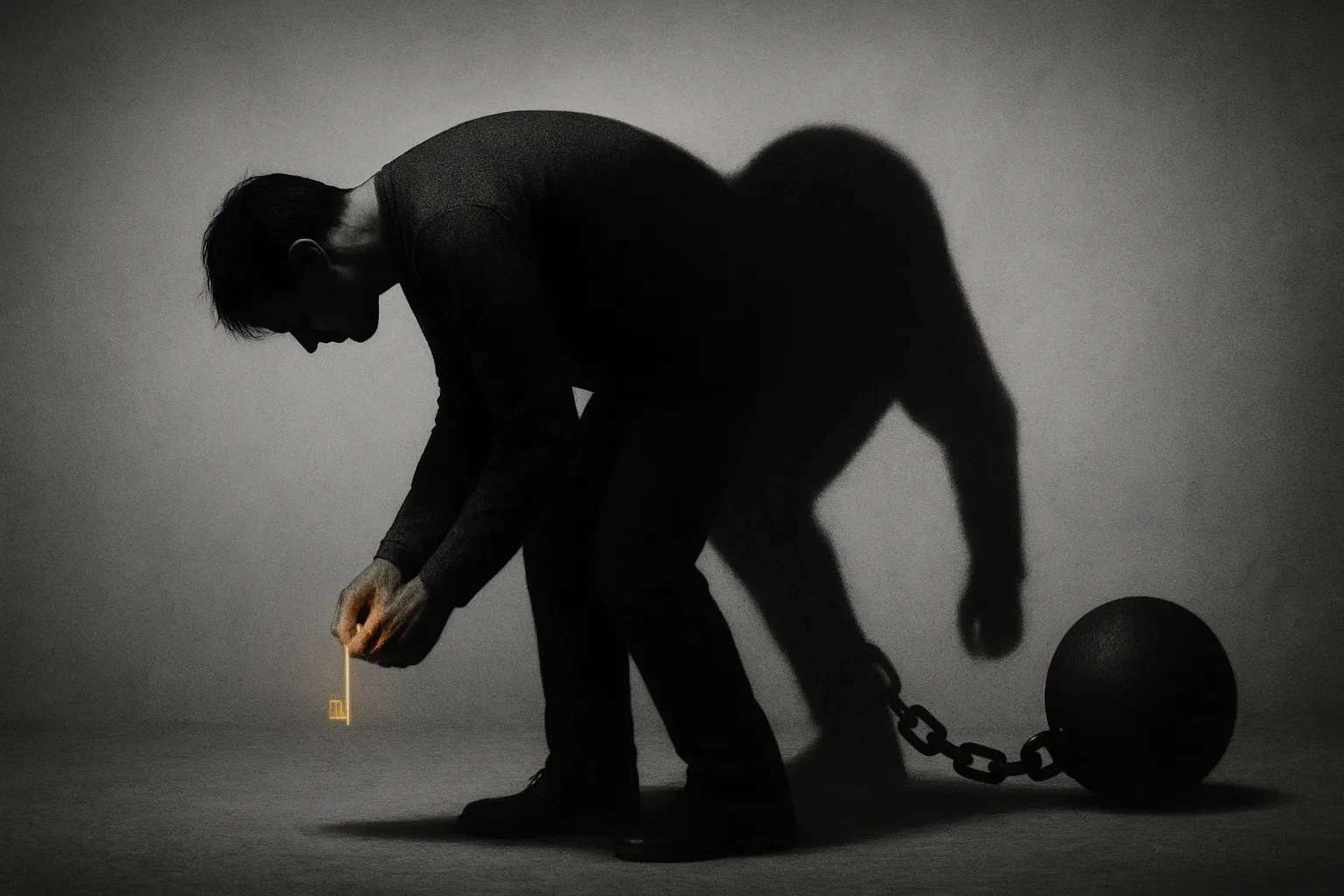When You Blame Yourself Entirely for the Breakup

The Crushing Weight of Self-Blame
In the painful accounting that follows a breakup, it's easy to arrive at a simple, devastating conclusion: "It was all my fault." Your mind can become a relentless prosecutor, replaying every mistake, every poorly chosen word, and every moment of insecurity on a loop. While taking responsibility for our actions is a sign of maturity, taking all the responsibility for a two-person dynamic is a form of self-punishment that can keep you stuck in a cycle of shame and prevent you from healing. This is your guide to putting down that impossibly heavy weight.
Deconstructing the Blame: A Relationship is a Two-Way Street
The first and most important truth to internalize is that a relationship is a system created by two people. It is a near-mathematical impossibility for its failure to be 100% one person's fault. Even if you made significant mistakes, your partner was an active participant with their own choices, reactions, and history.
Consider this:
- Even if you were anxious and needed reassurance (your part), your partner chose how to respond to that need—with compassion or with withdrawal (their part).
- Even if you struggled to communicate your feelings (your part), your partner also chose not to create a safer space for you to do so (their part).
- Even if you made a major mistake (your part), the relationship's health before that moment, and your partner's ultimate decision to leave rather than work through it, was also part of the equation (their part).
A relationship doesn't break from a single crack; it breaks when the entire foundation is unable to withstand the pressure.
The False Comfort of Control: Why We Blame Ourselves
It sounds strange, but clinging to self-blame can feel safer than the alternative. It's a painful but powerful psychological defense mechanism.
- It's an Illusion of Control: If the breakup was entirely your fault, it means you held all the power. This creates the illusion that if you can just "fix" your fatal flaw, you can prevent this pain from ever happening again. This can feel less terrifying than the reality that we cannot control another person's choices.
- It Can Be a Form of Bargaining: By taking all the blame, a part of us hopes that this admission of guilt could be the key to winning our ex back. "If I just apologize enough for my mistake, maybe they will come back."
- It Fits a Familiar Narrative: If you already struggle with a harsh inner critic or low self-esteem, the narrative of "it was all my fault" is a comfortable, familiar story for your brain to latch onto.
From Self-Blame to Healthy Responsibility: A Crucial Distinction
The goal is to move from punitive self-blame to compassionate self-responsibility. They are not the same thing.
- Self-Blame is General and Character-Based: It sounds like, "I am too needy. I am a toxic person. I ruin everything I touch." It leads to shame and paralysis.
- Healthy Responsibility is Specific and Behavior-Based: It sounds like, "I recognize that my insecurity led me to act in ways that pushed my partner away. This is a pattern I want to understand and work on for my own growth." It leads to learning and empowerment.
Try this exercise: On a piece of paper, draw a line down the middle. In one column, write down the specific behaviors you take responsibility for. In the other, write down the things that were your partner's responsibility (their communication style, their reactions, their own unresolved issues). This can help you visually untangle the shared dynamic.
The Practice of Self-Forgiveness
Once you've identified your part with clarity, the next step is to offer yourself grace. Self-forgiveness is essential for moving on.
- Acknowledge Your Humanity: Remind yourself that you are an imperfect human being, and you are allowed to make mistakes. That is how we learn.
- Remember Your Intentions: It is highly unlikely you intended to cause the breakup. You were most likely operating from a place of fear, hurt, or an unmet need. Have compassion for the struggling person you were in those moments.
- Focus on the Lesson: Every mistake is a lesson in disguise. The pain of this experience has given you invaluable information about yourself. That is not a failure; it is the raw material for your future growth.
You Can Stop Punishing Yourself Now
Carrying 100% of the blame for a two-person story is an exhausting and unnecessary burden. You are allowed to put it down. You can own your part without letting it define your worth. You can accept that the end of this relationship was a complex event, not a simple referendum on you as a person. The greatest gift you can give yourself in the healing process is the radical compassion to let yourself off the hook and start again, not with shame, but with wisdom.


